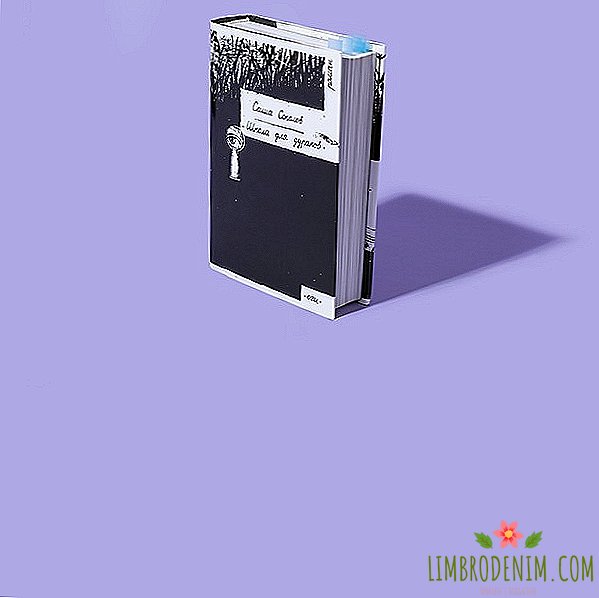How we are forced to buy more - and how not to fall for tricks

alexander savina
The desire (or, conversely, unwillingness) to spend less - everyone's personal matter: only you determine how to manage the budget, which purchases have value for you, and which ones have no value. But still, it is impossible not to take into account that retailers are making great efforts to make us buy more. We talk about some of the techniques that will help to buy more consciously - both in online and offline stores.

Remember that really "free" is not enough
You hardly believe that you can get something in the store for free - after all, each of them is created for profit. Nevertheless, the phrase "free" is found regularly - from the scheme "buy one product and get the second free" to "free" delivery. Researcher Dan Arieli conducted an experiment with gift certificates: participants could choose a certificate for ten or twenty dollars - while for a certificate for twenty dollars they always had to pay more (five and twelve dollars, one and eight dollars, for free and seven dollars). Despite the fact that the twenty-dollar card was more profitable, the majority of participants preferred a ten-dollar card.
This includes free shipping. Many companies offer it when you have placed an order for a certain amount - it can be profitable if your planned purchases are worth that much or if you collect the order with friends. But if the amount does not reach the required amount, there is always a risk that you will buy more - and, perhaps, in the end, pay in excess of what was needed for the delivery.
Careful with limited offers
Another simple trick that makes us buy more and faster is limited offers. They can be very different: discounts on a specific product in the store, which are valid for a short time, or an obsessive pop-up banner with a timer that offers you a 10-15% discount if you place an order within ten minutes. They all create a sense of urgency: it seems that if you do not make a decision right now, you can miss a good bargain. As a result, you can buy something that you don’t really need or don’t really want to - just because you haven’t given yourself time to think.
Attentive to numbers
The trick we're all used to is prices ending in nines, like 3999, 4299 or classic American 9.99. Why we react so violently to nines is explained in different ways. One theory says that since we read from left to right, the brain pays more attention to the first digit — and although 5999 is closer to six thousand, we estimate them as if it were five. According to another version, the nines at the end signal to buyers about a bargain - regardless of whether it is in fact or not. With all the evidence, even the most persistent customers sometimes forget about this technique - so stay alert.

Don't underestimate the power of display
This rule applies primarily to the huge grocery supermarkets - although everyone pays attention to the layout. Do not underestimate it: remember how many rows you usually pass to get to basic necessities like milk or bread - most likely, this is done on purpose so that you pay attention to other things along the way. Perhaps what products are located in the adjacent rows, you too embarrass and seem illogical - the researchers believe that when we get lost, we are more prone to impulsive purchases.
Shelves at the ends of long rows are often used for special offers — many buyers automatically pay special attention to them, even if there is no benefit there. It is also important how the products are located on the shelf. At eye level, more expensive items can be laid out so that you notice them first. Children's products like toys or sweets can be laid out below, so that they are more noticeable to the child - and he, in turn, asked the parents to buy them. Finally, it is worth being careful with chocolates and magazines at the cash register and departments where things (for example, old DVDs for fifty rubles each) are given at a huge discount: there is a risk to buy a bunch of little things that you really don't need for a tidy sum .
Large packaging - more purchases
We all are accustomed to buying in large quantities is usually cheaper: for a few packs a discount is often required. But in practice, the benefit is always relative: first you need to make sure that you really spend everything you bought - and do not throw away a huge package of expired yogurts, simply because you are not able to eat them during this time. It is difficult to plan how things will go in a few weeks - you may have to walk a lot for guests or events, and the food at home will remain unclaimed. In addition, perhaps you just do not need so much: if you only have a small can of soda, it makes no sense to buy a more expensive two-liter bottle just because two hundred milliliters are cheaper in this case - in the end you will spend more.
Loyalty card
A huge number of retailers offers loyalty cards - this is convenient if you know for sure that you must buy something else at this place. But, as in any business, it is useful to be more careful: registering a card by phone number, you will probably receive regular mailings with special offers and sales - and this is a direct path to unplanned purchases. In addition, a regular customer card can push you to spend money right here - it can be profitable if it is your favorite store, and not so much, if somewhere you can find things that are not worse at lower prices.

Be careful with mailings (even if they offer a discount)
One of the pillars of online shopping is a pop-up window that offers an impressive discount right now if you sign up for the company's email newsletter. This can be useful if you really want to keep track of everything that is happening with the seller, or, for example, wait for sales to finally buy the right thing - but in other cases it may make you spend more. “Daily or weekly newsletters force us to keep track of new products or sales, although we wouldn't do that in a normal situation,” said Ashley Gerstley, coach and founder of The Fiscal Femme programs. “They may make you want to buy something, although earlier it was not necessary for you, which is why you will spend more and more. "
Remember that a card is also real money.
You have probably heard about the dangers of paying with a card compared to cash — regardless of whether you put a card on the machine at the checkout of a regular store or enter data in an online store, money in our perception often turns into a figure, not a real amount. taken from salary. Abandoning the achievements of modernity and throwing the map is not necessary - you can simply be more careful and remember the budget.
Avoid Autocomplete
Payment in one click is, of course, very convenient, but the easier it is to make a purchase, the more likely it is that the thing will not be so important and necessary. This includes autocomplete credit card information, and payment through an account at Amazon, and the purchase of applications through the App Store - to buy something impulsive is so much easier than if you spent five minutes on data entry. Think about what is more profitable in your case - convenience or one more tool for self-control.
Photo: niradj - stock.adobe.com, niradj - stock.adobe.com, niradj - stock.adobe.com, niradj - stock.adobe.com




